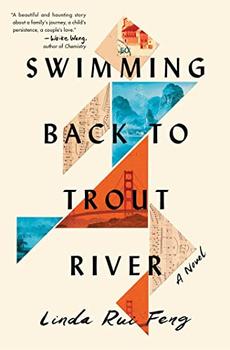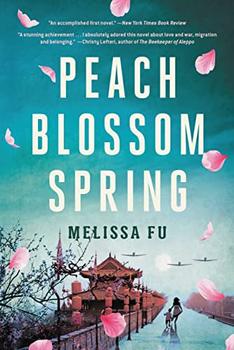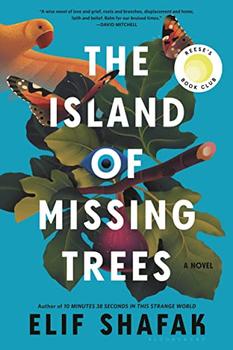Summary | Excerpt | Reviews | Beyond the book | Read-Alikes | Genres & Themes | Author Bio

Linda Rui Feng's first novel, Swimming Back to Trout River, is a powerful meditation on the ties that bind us within history, geography and community, told through the lens of four primary characters: Cassia, Momo, Junie and Dawn. The strength of the novel doesn't lie in the dramatic events that underpin the characters' lives — the Cultural Revolution, immigration, heartbreaking tragedies and individual struggles — but rather, in the simple presentation of their existences unfolding naturally through interactions with each other and the world.
Feng provides a guide to an "untranslatable" word that encompasses the overall philosophy, theme and effect of this book: yuanfen, which acknowledges an "unknowability in the workings of the universe," implying that there is an "invisible mesh" that loosely binds people and circumstances. It is precisely this unknowable quality that infuses the novel — while events occur and characters interact with one another, it is impossible for the reader to predict what will happen, or what has happened in the past. Cassia and Momo may be husband and wife, Junie may be their daughter, and Dawn may be Momo's old college friend, but the importance of these labels is eroded into the larger "mesh" that ties them all together, even when they are apart. The rifts are not just across countries, but also in the expectations that they have, as husband and wife, as first loves, as parents wishing for a physically ideal child. Their interactions unfold and fall into place naturally to culminate in a surprisingly violent, yet gently presented conclusion.
We are drawn into the characters' lives, but they don't follow traditional dramatic arcs or narratives. There is no exposition, climax, denouement, primary struggle or key character development. Instead, the story reflects the natural ebbs and flows, the minor entanglements and ripple-effect impacts that each person has upon each other as the moments of life unfold. In this sense, it is surprising that Feng manages to keep the reader's attention throughout, but this is accomplished through the care and thoughtfulness in her writing, and the subtle love and respect that we come to feel for the characters. These elements draw us back to keep reading Feng's beautiful phrases and to keep wondering with interest what will happen next.
Swimming Back to Trout River is also a rare immigration story that forgoes traditional tropes and does not romanticize or sensationalize one part of the journey at the expense of presenting the complex whole of each individual character. The journeys that Cassia, Momo and Dawn take from China to the United States almost end up becoming minor details, serving as a backdrop to the more important and interesting quiet development of their lives. This is also the case with Junie — her congenital defects and life in a rural Chinese village are neither overdramatized nor exoticized. Rather, she is just a young girl growing up and coming into her own sense of independence and free will. While there are a number of dramatic events that occur throughout — after all, they are living through the Cultural Revolution — the focus is on Cassia, Momo, Junie and Dawn — their simple existences, presented without justification.
![]() This review was originally published in The BookBrowse Review in June 2021, and has been updated for the
June 2022 edition.
Click here to go to this issue.
This review was originally published in The BookBrowse Review in June 2021, and has been updated for the
June 2022 edition.
Click here to go to this issue.

If you liked Swimming Back to Trout River, try these:

by Melissa Fu
Published 2023
A "beautifully rendered" novel about war, migration, and the power of telling our stories, Peach Blossom Spring follows three generations of a Chinese family on their search for a place to call home (Georgia Hunter, New York Times bestselling author of We Were the Lucky Ones).

by Elif Shafak
Published 2023
A rich, magical new novel on belonging and identity, love and trauma, nature and renewal, from the Booker-shortlisted author of 10 Minutes 38 Seconds in This Strange World.
It is among the commonplaces of education that we often first cut off the living root and then try to replace its ...
Click Here to find out who said this, as well as discovering other famous literary quotes!
Your guide toexceptional books
BookBrowse seeks out and recommends the best in contemporary fiction and nonfiction—books that not only engage and entertain but also deepen our understanding of ourselves and the world around us.